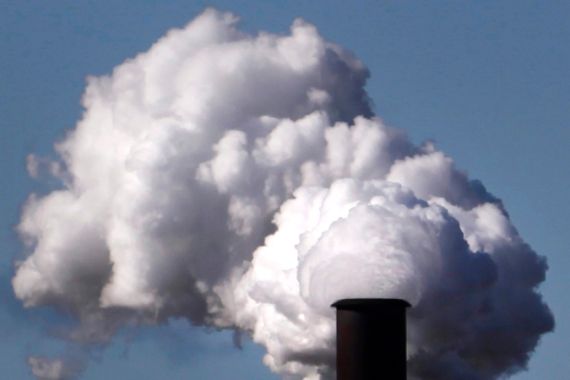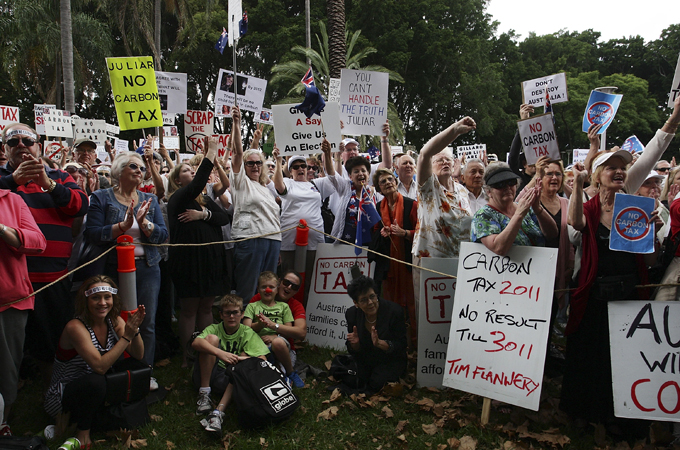Australia to tax country’s worst polluters
Government to introduce carbon tax on country’s 500 largest polluters, as it unveils largest such scheme outside Europe.

 |
| Gillard’s plan is highly unpopular because it will directly affect the cost of household energy [GALLO/GETTY] |
Australia has unveiled extensive plans, including a tax on its worst polluters, to reduce its carbon pollution by 5 per cent over the next nine years.
In what is the largest carbon-reduction scheme outside Europe, the country’s 500 worst polluters will be forced to pay $25 for every metric tonne of carbon dioxide they emit from 2012.
Keep reading
list of 4 itemsThe Final Breath
Malaysia plans ‘orangutan diplomacy’ in palm oil pitch
Photos: Sustainable living gives Hungarian families hope for the future
Some of this money will be used to help compensate households that will be hit by higher power bills.
“Australians want to do the right thing by the environment,” said Australia’s Prime Minister Julia Gillard, whose country is the rich world’s worst per capita greenhouse gas emitter due to a heavy reliance on ageing coal-fired power stations for electricity generation.
Gillard’s plan, which is highly unpopular since as it will drive up household energy costs, would cut 159 million tonnes of carbon pollution by 2020, reducing emissions by 5 per cent compared to 2000 levels.
“That is why the Gillard government is implementing a comprehensive plan for a clean energy future for our nation,” she said.
The scheme will cover 60 per cent of Australia’s carbon pollution apart from exempted agricultural and light vehicle emissions.
It could also aid global efforts to fight carbon pollution, which have largely stalled since US President Barack Obama last year ruled out a federal climate bill this term.
The scheme will cost $4.7bn to implement, including household and industry compensation to avoid a political backlash.
Gillard said her government would spend nearly $10bn over the first three years of the scheme to ensure heavy polluting industries like steel and aluminium production were not killed off, and help close down the oldest and dirtiest power stations.
Compensation package
Coal miners would be eligible for a $1.4bn compensation package to help the intensive mines adjust to the tax, which would add an average $1.9 per tonne to the cost of mining coal.
Australia, a major coal exporter, relies on coal for 80 per cent of electricity generation, which in turn accounts for 37 per cent of national emissions.
The government would also set up loan guarantees for electricity generators through a new energy security fund, to help the industry refinance loans of between $9bn and $10bn over the next five years.
The scheme will fund the shut-down or partial closure of the dirtiest generators and remove up to 2,000 megawatts of capacity by 2020.
Europe’s reduction system, which covers the 27 European Union member states plus Norway, Iceland and Liechtenstein, has forced power producers to pay for carbon emissions, driving cuts where power plants were forced to switch to less carbon-emitting natural gas or biomass.
Outside the EU, only New Zealand has a national scheme in operation.